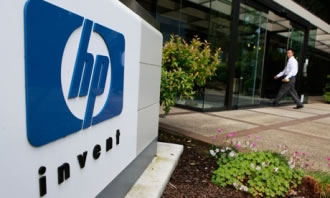Hewlett-Packard's personal computer shipments grew 5.3 percent in the third quarter of 2011, while for the first time Lenovo has overtaken Dell to become the world's second biggest computer manufacturer, according to the data from two influential research firms.
HP, still trying to decide before the end of October whether to sell its PC division or not, remains the number one manufacturer with a 17.7 percent share, up slightly from its previous 17.3 percent share a year ago according to technology research house Gartner.
Meanwhile IDC puts HP's market share at 18.1 percent, agreeing that HP, Lenovo and Dell were ranked in first, second and third place respectively. PC sales have been suffering in recent times, however, as the consumer market turns increasingly to tablet and portable devices like smartphones.
Lenovo, helped by aggressive marketing, increased its market share to 13.5 percent up from 11.1 percent last year, surpassing Dell's 11.6 percent and thus becoming the world's second biggest PC producer by sales.
"For the moment, PCs have taken a backseat to a range of other devices competing for shrinking consumer and business budgets," Jay Chou, senior research analyst with IDC commented. "While growth is expected to stay in mid-single digits in the fourth quarter, we should see faster growth in 2012 and beyond."
PC shipments in the US increased by just 1.1 percent to 17.8 million units in the third quarter, according to Gartner. "Despite the potential spinoff of its PC business, HP executives' efforts to give the appearance of 'business as usual' seemed to work." Gartner noted that while growth was very slow, it marked the first time shipments had grown in three consecutive quarters.
"As the PC market faced a slowdown, vendor consolidation has become a more apparent trend in the industry. Lenovo's recent merger with NEC, and its acquisition of Medion, as well as HP's announcement that it may spin off or sell its PC business, underlined this trend during the quarter." Gartner also said back-to-school sales were disappointing in mature markets, further confirming that the PC market is weakening due to the popularity of so-called post-PC devices.
